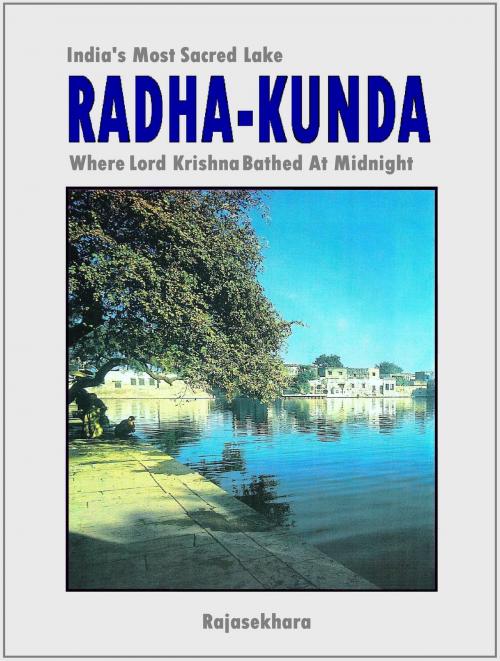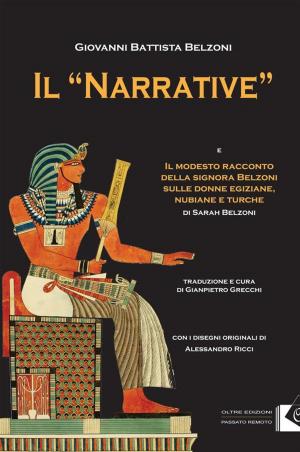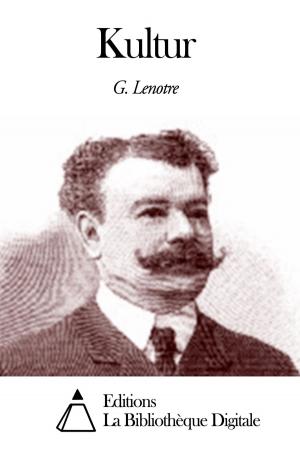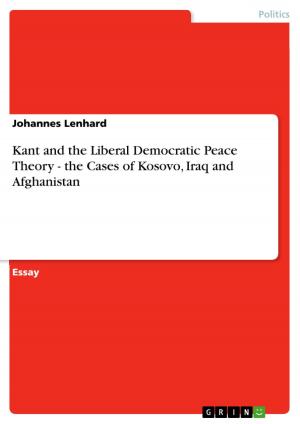Radha-kunda: India’s Most Sacred Lake - Where Lord Krishna Bathed At Midnight
Nonfiction, Religion & Spirituality, Reference, History| Author: | Rajasekhara | ISBN: | 9781311690791 |
| Publisher: | Rajasekhara | Publication: | May 22, 2015 |
| Imprint: | Smashwords Edition | Language: | English |
| Author: | Rajasekhara |
| ISBN: | 9781311690791 |
| Publisher: | Rajasekhara |
| Publication: | May 22, 2015 |
| Imprint: | Smashwords Edition |
| Language: | English |
The day on which Radha-kunda appeared in this world is known Bahulashtami, which means the eighth day of the waning moon. In this regard the word ‘bahula’ refers to the ‘dark fortnight’ of the waning moon, also known as krishna-paksha, and ‘ashtami’ means the ‘eighth day’. Because Radha-kunda appeared on the stroke of midnight, hundreds of thousands the pilgrims descend on Radha-kunda on the night of bahulashtami to take their sacred bath on the exact stroke of midnight. Therefore this night-time bath at Radha-kunda is called the adiratri-snana (mid-night bath) and it is the only snana or ritual bath in the whole world that is performed at midnight. In the Padma Purana (Karttika Mahatmya) it says. ”If a person takes bath in Radha-kunda on the day of Bahulashtami in the month of Karttika, they become very dear to Krishna.”
The great spiritual benefit one achieves by simply bathing once in Radha-kunda is incomparable, but as Krishna has said, such bathing must be done with ‘full faith and devotion’ in order for such bathing to have its full transcendental effect. It is not that some sinful devil can simply take bath in the sacred kunda and immediately achieve divine love for Radharani, equal to that of Krishna Himself. That kind of sentimental assumption is not philosophically correct. Krishna’s injunction is that those who bathe must also be properly qualified, or in other words, the bather must possess the qualification of complete faithfulness and devotion, which can only be achieved by the mercy of a bona-fide spiritual master and through the practice of pure devotional service.
The following verses from Vaishnava scriptures glorify the benefits obtained by bathing at Radha-kunda. “One can immediately attain pure love of God by once bathing in Radha-kunda.” Radha-kundastakam – Raghunatha Dasa Goswami. “Shri Krishna gives ecstatic love like that of Radharani to whoever bathes in Radha-kunda.” Chaitanya-charitamrita – Krishnadasa Kaviraja Goswami. “A devotee will at once develop pure love of Krishna in the wake of the gopis if he once takes bath in Radha-kunda.” The Bhaktivedanta purport to Upadeshamrita says. “Because these two lakes are manifestations of Radha and Krishna’s divine love, those who bathe there are most fortunate, because bathing there is like bathing in the transcendental love of Radha and Krishna.”
The day on which Radha-kunda appeared in this world is known Bahulashtami, which means the eighth day of the waning moon. In this regard the word ‘bahula’ refers to the ‘dark fortnight’ of the waning moon, also known as krishna-paksha, and ‘ashtami’ means the ‘eighth day’. Because Radha-kunda appeared on the stroke of midnight, hundreds of thousands the pilgrims descend on Radha-kunda on the night of bahulashtami to take their sacred bath on the exact stroke of midnight. Therefore this night-time bath at Radha-kunda is called the adiratri-snana (mid-night bath) and it is the only snana or ritual bath in the whole world that is performed at midnight. In the Padma Purana (Karttika Mahatmya) it says. ”If a person takes bath in Radha-kunda on the day of Bahulashtami in the month of Karttika, they become very dear to Krishna.”
The great spiritual benefit one achieves by simply bathing once in Radha-kunda is incomparable, but as Krishna has said, such bathing must be done with ‘full faith and devotion’ in order for such bathing to have its full transcendental effect. It is not that some sinful devil can simply take bath in the sacred kunda and immediately achieve divine love for Radharani, equal to that of Krishna Himself. That kind of sentimental assumption is not philosophically correct. Krishna’s injunction is that those who bathe must also be properly qualified, or in other words, the bather must possess the qualification of complete faithfulness and devotion, which can only be achieved by the mercy of a bona-fide spiritual master and through the practice of pure devotional service.
The following verses from Vaishnava scriptures glorify the benefits obtained by bathing at Radha-kunda. “One can immediately attain pure love of God by once bathing in Radha-kunda.” Radha-kundastakam – Raghunatha Dasa Goswami. “Shri Krishna gives ecstatic love like that of Radharani to whoever bathes in Radha-kunda.” Chaitanya-charitamrita – Krishnadasa Kaviraja Goswami. “A devotee will at once develop pure love of Krishna in the wake of the gopis if he once takes bath in Radha-kunda.” The Bhaktivedanta purport to Upadeshamrita says. “Because these two lakes are manifestations of Radha and Krishna’s divine love, those who bathe there are most fortunate, because bathing there is like bathing in the transcendental love of Radha and Krishna.”















